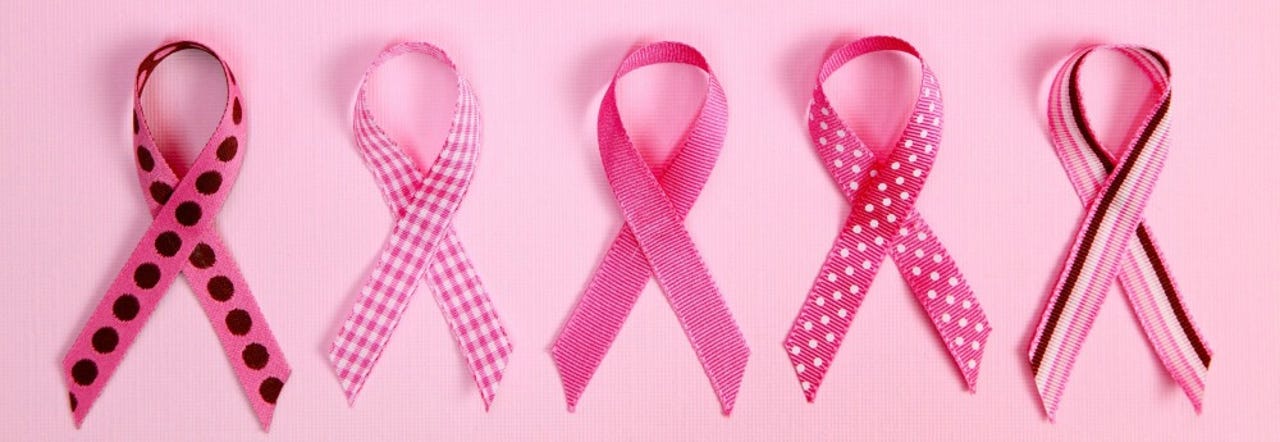Four-Time Cancer Survivor on the Importance of Data-Driven Health Decisions

Roughly 300,000+ new cases of breast cancer are expected to be diagnosed in women in the U.S. in 2016 (breastcancer.org). Breast cancer is the most commonly diagnosed cancer among American women, with skin cancer ranking number two.
Unfortunately, four-time cancer survivor Kym Martin, MBA, CNC, CFT knows both diagnoses all too well.
Kym Martin's Cancer Journey
I had the pleasure of speaking to Kym at SAPPHIRE NOW 2016 to discuss her cancer journey.
She shares her story publicly to empower others, showing the world that life after a cancer diagnosis can be fruitful, rewarding, and inspiring.
When diagnosed with Hodgkin's lymphoma as a teen in 1983, support groups and resources were sparse and treatment was based on limited research statistics as compared to the impact of "big data" on personalized medicine today.
Kym underwent 40 rounds of radiation to kill her cancer, and when completed, she was forced to live in a nearly new body.
The harsh side effects of radiation treatment plagued Kym for years to come, especially in the form of three additional cancer diagnoses: melanoma twice and breast cancer.
Breast Cancer: Data Driven Healthcare Decisions Are Better Healthcare Decisions
In 2012, Kym was diagnosed with breast cancer and chose to have her breast tumor analyzed for chemotherapeutic effect. Based on her genetic profile, Kym's body overexpresses a gene that repairs DNA. This gene compromises the impact of two of the three chemotherapy drugs recommended in her cocktail.
Therefore, this standard protocol for treating HER2 breast cancer would have produced "little to no benefit" per the lab report based on Kym's personal genetic makeup. Without the data and facts behind her tumor profile, she would have never known.
Through precision medicine and the advancement in genetic tumor profiling, experts are hopeful for extended survival rates and reduction in toxic side-effects when it comes to cancer treatment. With that said, the latest cancer approach may pave the way for 7,000 women spared from the noxious effects of chemotherapy (Parent Herald).
"It will be a significant step forward," UCL breast cancer consultant Dr. Robert Stein said. "In every area of cancer treatment, we have largely functioned on a one-size-fits-all basis because we didn't have tools to do any better."
COPE-ing with Cancer
When I spoke to Kym at SAPPHIRE NOW, she was impressed to learn about SAP's Corporate Oncology Program for Employees (COPE). Through COPE, SAP enables access to Molecular Health Guide™, which runs on the SAP HANA platform. The solution helps physicians interpret genetic changes and select personalized cancer-treatment options based on efficacy and safety. SAP is the first employer to offer COPE to eligible employees. COPE was first piloted in Germany in 2014 and is now also available in USA, Canada, and UK.
Life After Cancer
Kym decided to forgo chemotherapy and lives a fulfilling life managing her breast cancer and survivorship with natural remedies. She is a firm believer in the critical importance of proactively catching reoccurrence as early as possible. Through her four unique cancer experiences, she wants to help others understand how to feel empowered around cancer. Whether you've been diagnosed or touched by the disease, she hopes to help people move through the fear, personalize their care, and embrace survivorship as a lifelong journey.
Kym is a strong advocate of programs like COPE. Through her public speaking engagements, she promotes the idea that knowledge is power. She urges people to take ownership of their health, learn about and take advantage of programs like COPE, find support systems post-cancer diagnosis, live a healthy lifestyle, manage fear, and partner with doctors as a proactive agent in one's own health.
Follow me on Twitter @Cmdonato and connect with me on LinkedIn.
This story originally appeared on the SAP Community Network.